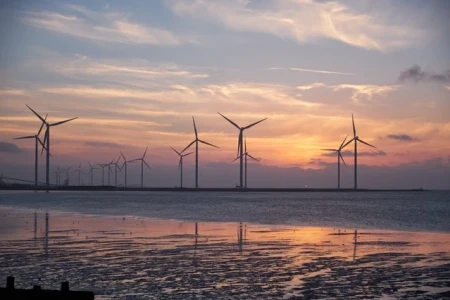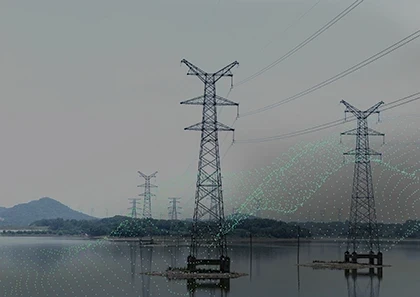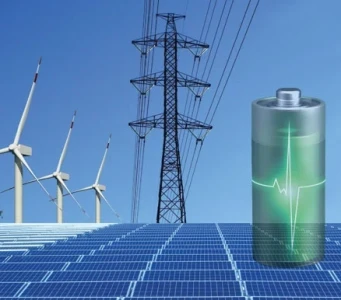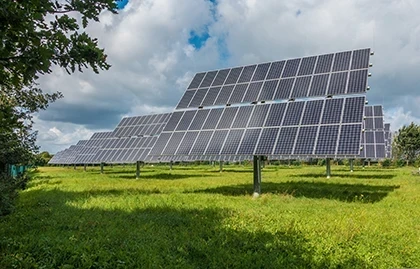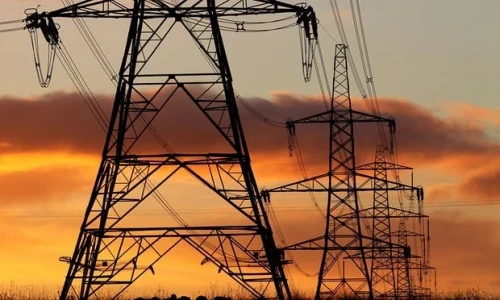Duke Energy Approved to Deploy New Power Generation in NC

Duke Energy has received approval from North Carolina regulators to deploy a significant amount of new power generation capacity in the state, including new natural gas plants, as part of its long-term energy transition strategy. The decision, which is expected to have a major impact on the state’s energy mix and grid infrastructure, is aligned with Duke's commitment to reducing carbon emissions while maintaining grid reliability and meeting growing demand.
Key Highlights of the Approval
The approval, granted by the North Carolina Utilities Commission (NCUC), allows Duke Energy to move forward with plans to add thousands of megawatts (MW) of new generation capacity, including both renewable energy sources like solar and wind, as well as more traditional sources such as natural gas. The move comes at a time when the utility is working to strike a balance between decarbonization efforts and the need to maintain a reliable, affordable energy supply for the region.
The approval includes the development of several new natural gas plants, which will serve as backup power sources during periods of peak demand or when renewable energy generation is insufficient due to weather variability. These plants are considered a necessary bridge to support the transition to a cleaner energy grid while reducing the risk of power shortages and grid instability.
The Role of Natural Gas in the Transition
While renewable energy is expected to play an increasingly dominant role in Duke’s generation portfolio, natural gas is still seen as an important part of the energy mix in the near term. Natural gas plants are more flexible than coal plants and can be ramped up or down relatively quickly to provide power when solar or wind generation is low. This ability to provide reliable backup power is one of the key reasons why gas remains a central part of the energy transition in many states.
However, Duke Energy has made it clear that these new gas plants are intended to be part of a transitional strategy. The company plans to reduce its reliance on fossil fuels over the next few decades, with a goal of achieving net-zero carbon emissions by 2050. This long-term commitment includes the expansion of renewable energy sources, such as solar, wind, and battery storage, which will gradually replace natural gas and other fossil fuels over time.
Expanding Renewable Energy Capacity
In addition to new gas plants, Duke Energy’s plan also includes a major push to expand renewable energy generation. The utility is targeting significant investments in solar and wind projects, which will further diversify the state’s energy mix and reduce its carbon footprint. North Carolina, which is already one of the leading states for solar energy capacity, is expected to see continued growth in renewable energy generation as Duke Energy works to meet the state’s renewable energy goals.
In particular, Duke has been focused on developing large-scale solar installations and building out wind capacity both onshore and offshore. The company’s renewable energy projects are not just limited to solar and wind but also include energy storage systems, which will help smooth out the intermittent nature of renewable energy by storing excess power for use when generation is low.
Meeting Growing Demand and Grid Reliability
A critical factor behind the approval is the increasing demand for electricity in North Carolina, driven by population growth and economic development. As the state’s energy needs continue to rise, Duke Energy must ensure that it has sufficient capacity to meet that demand without sacrificing reliability. The new gas plants, along with the expansion of renewable generation and storage, are seen as necessary steps to ensure the grid remains stable and capable of handling future growth.
Grid reliability is a top priority for Duke, especially as the utility prepares to integrate more variable renewable energy sources into the system. Energy storage and flexible generation are essential components of this strategy, providing Duke with the tools to manage the fluctuating availability of wind and solar power.
Looking Toward a Cleaner Future
Despite the approval for new gas plants, Duke Energy’s long-term vision remains focused on sustainability and reducing the carbon footprint of its generation fleet. The utility is committed to achieving a carbon-free power grid by mid-century, and its plans reflect a careful balancing act between short-term needs and long-term climate goals. By investing in a mix of renewable energy, gas generation, and energy storage, Duke is positioning itself to navigate the complex energy transition while meeting the growing demand for power in North Carolina.
As the utility industry continues to evolve, the decision by Duke Energy highlights the challenges faced by utilities in balancing energy security, environmental responsibility, and economic growth. The approval to deploy new power generation capacity is a crucial step in Duke's efforts to modernize the grid and ensure a sustainable and reliable energy future for North Carolina.


